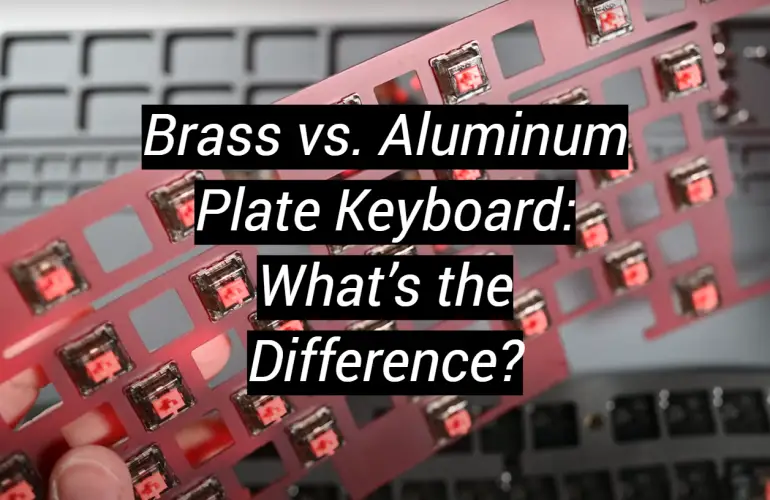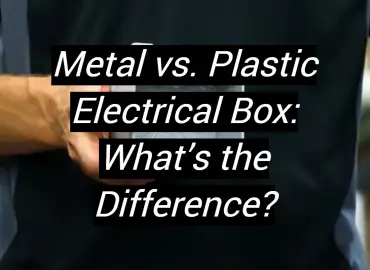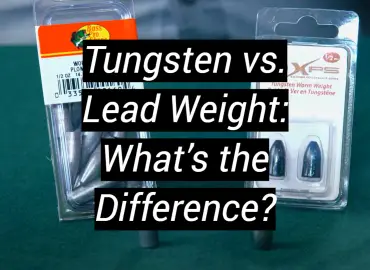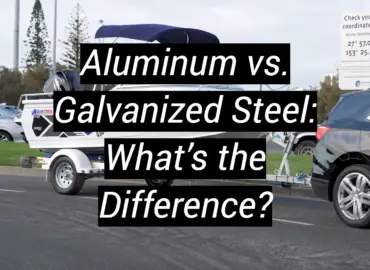Are you on the hunt for a new keyboard? Want to upgrade your setup, but don’t know where to start? One thing that’s sure to give any rig a major boost is switching out the stock plastic keys for metal ones.
But when it comes down to brass vs aluminum plates – what’s best? At first glance they may appear largely similar… but there are in fact bigger differences under the surface than you think!
In this blog post, we’ll examine all of these significant distinctions between brass and aluminum plate keyboards – helping ensure you purchase one that helps meet all your typing needs without breaking the bank. Read on and discover which could be right for you!
Brass vs Aluminum Plate Keyboard
Aluminum Plate Keyboard
Aluminum plates are a great choice for those looking to save money. Generally, aluminum plate keyboards cost less than brass ones – making them more attractive as an entry-level option for first-time buyers.
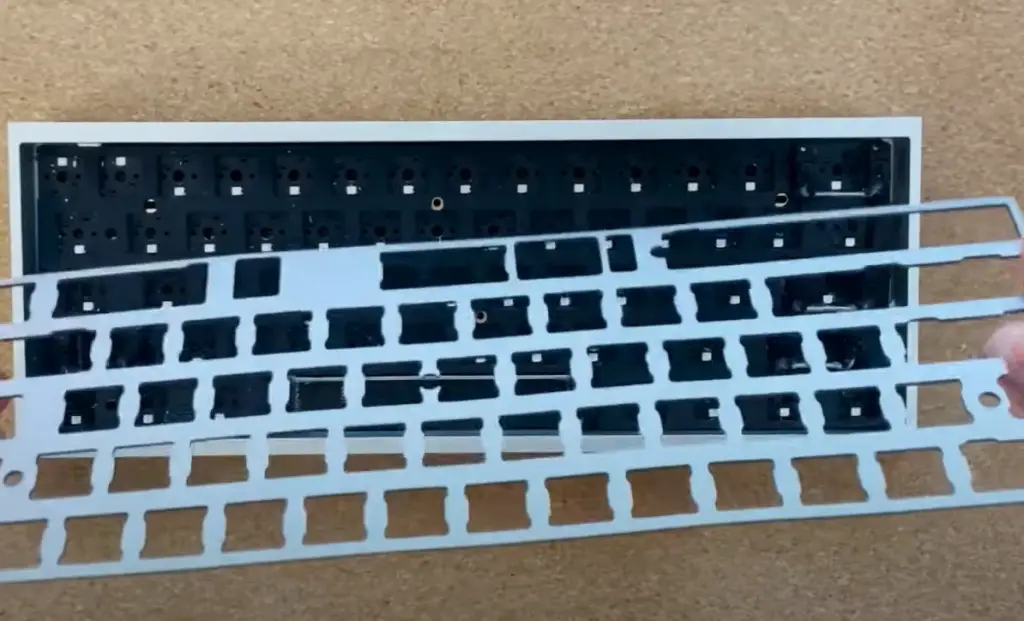
This can also be very appealing to anyone working on a tight budget and needing something that’s still relatively high quality but not too expensive.
Another advantage of aluminum plates is that they are readily available for purchase. This makes them a great option for anyone who does not want to go through the trouble of building their own custom keyboard. [1]
Pros of Aluminum Keyboard Plates:
- Lower cost than brass plates
- Can buy off the shelf
- Lightweight and durable
Cons of Aluminum Keyboard Plates:
- Susceptible to wear and tear over time
- Not as rigid as brass plates, which can make typing feel less responsive
Brass Plate Keyboard
Brass plate keyboards are usually more expensive than aluminum keyboards. However, brass is also a lot more rigid than aluminum – resulting in an improved typing experience with greater responsiveness and stability. This makes them a great choice for experienced typists who favour performance over price.
Pros of Brass Keyboard Plates:
- More rigid than aluminum plates for enhanced typing experience
- Longer lasting and less susceptible to wear and tear over time
Cons of Brass Keyboard Plates:
- Expensive compared to aluminum plates
- Heavier than aluminum plates, which can be cumbersome for some users
Choosing Between Brass and Aluminum Keyboard Plates
The choice of brass or aluminum keyboard plates is a personal preference. Many experienced typists may prefer the more rigid brass keyboard, but people who are on a budget or new to this may prefer the lightweight aluminum keyboard.
Feel & Sound
Keyboards with brass or aluminum plates can feel and sound different.
Convenience
The convenience of brass or aluminum plates depends on your needs. If you’re looking for a keyboard that’s easy to transport and set up, an aluminum plate may be the better option.
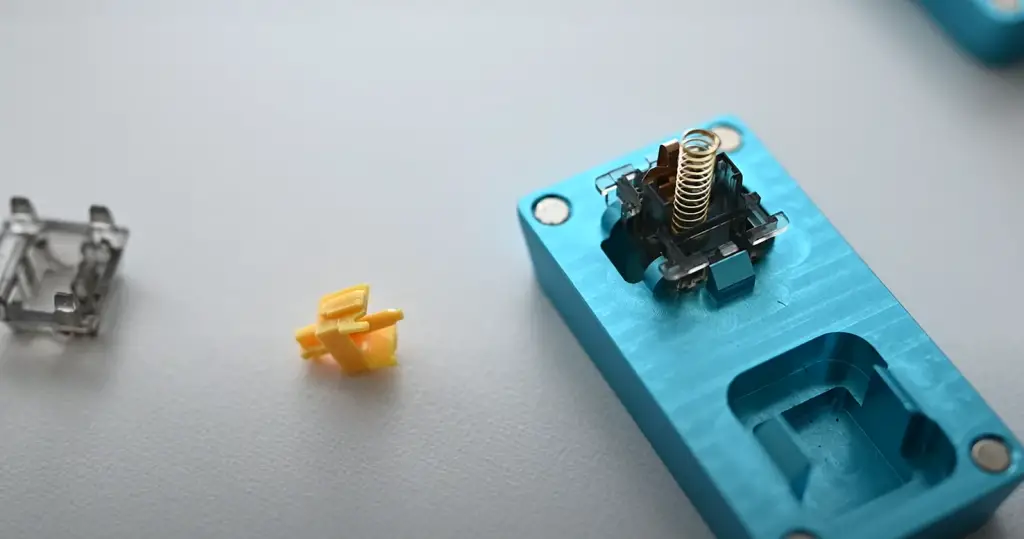
On the other hand, if you want more stability and rigidity in your typing experience, a brass plate is probably preferable.
Durability
When it comes to durability, brass is generally more durable than aluminum. This means a keyboard with a brass plate will last longer and be less susceptible to wear and tear over time.
Price Point
The price difference between brass and aluminum plate keyboards depends on the manufacturer.
Generally, brass plates are more expensive than aluminum ones – but not always. It’s important to do your research and compare prices before making a purchase.
There are advantages and disadvantages to both brass and aluminum plate keyboards. Consider what you want and need before making a decision. Also, check the prices to make sure you are getting the best deal.
Is Brass or Aluminum Better for Keyboard Plate?
The best keyboard plate for you is the one you like the best. Brass and aluminum have different benefits. If you want something that is lightweight and has a good feel when typing, aluminum might be better. If you want something that is more rigid and durable, brass might be better. It is up to you to decide!
It is important to think about what you need and how much money you have when choosing between brass and aluminum keyboard plates. Aluminum plates are usually cheaper, lighter and can be purchased without having to order them first.
Brass plates are more expensive but they are also more rigid, resulting in a better typing experience.
Are Brass or Aluminum Better for Clicky switches?
Clicky switches usually work better with brass. This is because brass has more weight than aluminum. The extra weight makes the keys easier to press down, which makes less noise over time. Brass also makes it easier to feel when the keys are pressed down, so you can type more accurately.
Even though aluminum is not as good as brass for typing, it can still provide a great experience when used with clicky switches. It all comes down to what you prefer and what works best for you.
If you want a keyboard that is quieter and provides more tactile feedback, brass may be the better option for you.
Are Brass or Aluminum Better for Tactile switches?
Tactile switches are often better with aluminum. This is because aluminum is lighter than brass and provides less resistance when the keys are pressed down. Aluminum also has a smoother texture, which makes it easier to type on.
However, if you prefer more feedback when typing, brass might be the better option for you. Brass provides more resistance, which makes it easier to feel when the keys are pressed down. This can make typing more accurate and enjoyable.
It is important to think about what you want before choosing a brass or aluminum keyboard. Different types of switches can provide different experiences.
Are Brass or Aluminum Better for Linear switches?
Linear switches are often better with aluminum because it provides less resistance than brass. This can help reduce the amount of noise that is produced when typing. The smooth texture also makes it easier to type on, as long as you don’t need to feel the keys very much.
If you want more feedback and resistance when typing, then brass might be the better option for you. Brass is heavier than other materials, which provides more resistance when the keys are pressed down. This can make typing easier and more accurate, as well as providing a nice tactile experience.
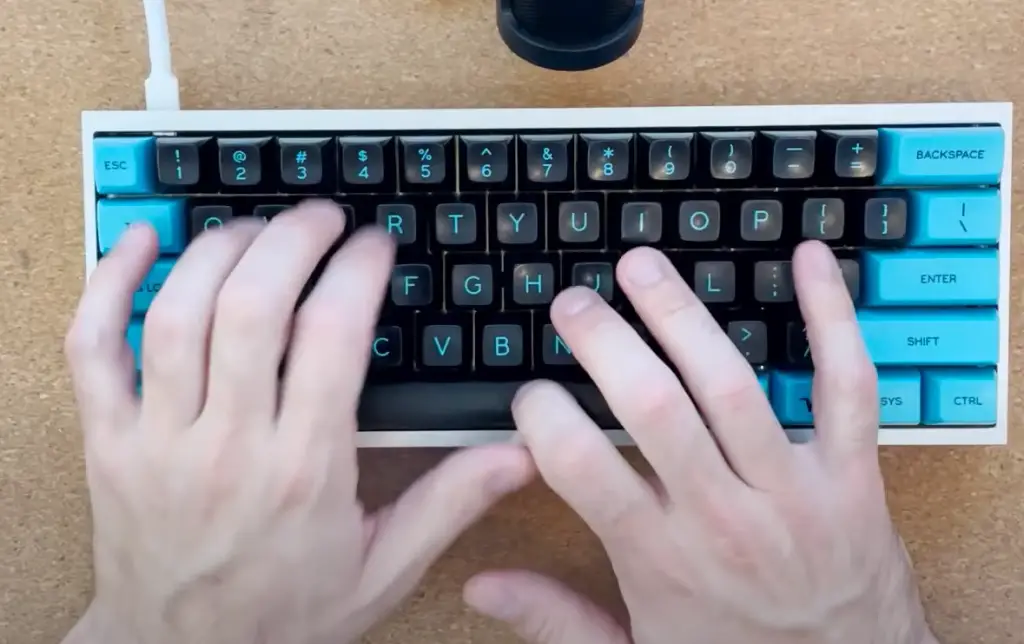
Again, it all comes down to what you want out of your keyboard and how much money you have to spend. Do some research and compare prices before making a purchase so that you get the best keyboard possible.
Do Brass Keyboard Plates Oxidize?
Brass keyboard plates can get rusty, but it is not something you need to worry about. Brass is a strong metal and does not corrode easily. However, it can still be affected by things like exposure to salt water or acidic substances.
To help prevent oxidation, make sure to keep your brass keyboard plate away from any corrosive substances, and clean it regularly with a mild soap. This will ensure that your keyboard plate stays in good condition for years to come.
Prevent Brass Keyboard Plate From Oxidation
If you want to prevent your brass keyboard plate from oxidation, there are a few steps you can take.
- First, make sure that the plate is kept away from any corrosive substances or liquids.
- Secondly, make sure to clean it regularly with a mild soap and warm water. This will help remove any dirt or dust that might be corroding the plate.
- Thirdly, store the plate in a cool dry place when not in use. This will help prevent oxidation due to heat or moisture.
- Finally, if you want extra protection, you can apply a protective coating of wax or lacquer to the plate.
FAQ
Which plate is better for a keyboard?
It all depends on what you want from your keyboard. Brass usually provides more resistance and feedback when typing, which can help you type accurately. Aluminum is lighter and cheaper, but it might not be as comfortable for some users.
In the end, the best plate material for you will come down to your own personal preferences and budget.
Does a brass keyboard plate oxidise?
Brass is a strong metal and doesn’t corrode easily, but it can still be affected by exposure to salt water or acidic substances.
To prevent oxidation, make sure to keep your brass keyboard plate away from corrosive substances, clean it regularly with a mild soap and warm water, store it in a cool dry place, and optionally apply a protective coating of wax or lacquer.
What is a brass plate keyboard?
A brass plate keyboard is a type of mechanical keyboard that uses a metal plate made of brass to add extra stability and support.
This makes the keyboard more durable and helps reduce noise when typing. It also provides more resistance which can help you type accurately.
How does plate material affect the keyboard?
The plate material is important because it affects how much resistance there is when typing, as well as the weight of the keyboard.
Heavier materials like brass provide more resistance and help keep the keyboard stable, while lighter materials like aluminum are cheaper and provide less feedback but might not be as comfortable for some users.
What plate is best for tactile switches?
Tactile switches are types of switches that need to be pushed down harder in order to work. Brass is usually the best plate material for tactile switches because it provides a nice “clicky” feel while also providing enough weight to keep the keyboard stable and reduce noise.
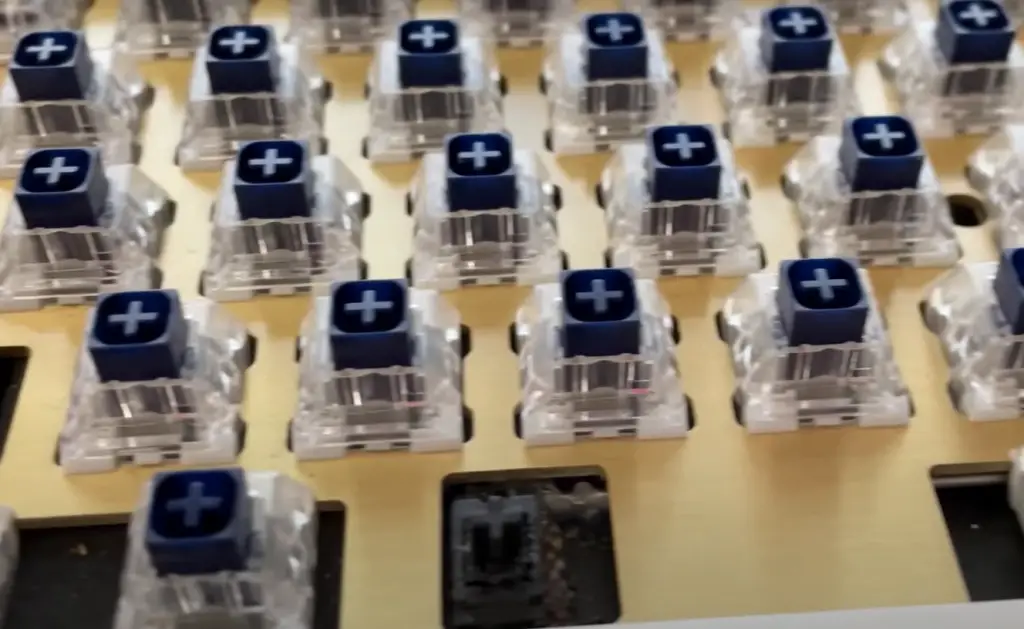
Aluminum might not provide as much resistance and feedback, so it might not be ideal for tactile switches.
What is the difference between a brass and an aluminum plate keyboard?
The main difference between a brass and an aluminum plate keyboard is the weight. Brass is heavier and provides more resistance when typing, which can help you type accurately.
Aluminum is lighter and cheaper, but it might not be as comfortable for some users. Additionally, brass does not corrode easily while aluminum can be affected by exposure to salt water or acidic substances.
How do I take care of a brass keyboard plate?
- To protect your brass keyboard plate, make sure to do four things.
- First, keep it away from any corrosive substances or liquids.
- Secondly, make sure to clean it regularly with a mild soap and warm water.
- Thirdly, store the plate in a cool dry place when not in use.
- Finally, if you want extra protection, you can apply a protective coating of wax or lacquer to the plate.
How do I know if my keyboard has a brass or aluminum plate?
It’s usually easy to tell the difference between a brass and an aluminum plate keyboard. Brass is heavier, darker in color, and usually more resistant when typing.
Aluminum is lighter, silver in color, and usually provides less resistance when typing. You can also try removing the plate and looking at the material underneath. If it’s brass, it should be stamped with the words “brass plate” or something similar.
Does a brass plate keyboard cost more than an aluminum one?
Yes, because brass is a heavier material, it typically costs more than aluminum. However, the extra cost can be worth it if you are looking for a durable and reliable keyboard that will last for years to come.
Do brass plate keyboards make typing louder?
No, brass plate keyboards are actually quieter than aluminum ones because they provide more resistance and support. This helps reduce the noise from typing.
Additionally, the extra weight can help keep the keyboard in place so that it does not move around and cause extra noise.
Does a brass plate keyboard require more maintenance?
No, a brass plate keyboard does not require any extra maintenance than an aluminum one.
Additionally, you can apply a protective coating of wax or lacquer if you want extra protection.
Do brass plate keyboards last longer?
Yes, brass is a more durable material than aluminum and it does not corrode as easily. This means that a brass plate keyboard can last for years with proper care and maintenance.
Additionally, the extra weight helps keep the keyboard stable and further reduces wear and tear on the keys.
Can I replace the plate on my keyboard?
You can replace the plate on your keyboard if it is made of brass or aluminum. But depending on the type of switch, it might be hard to find a compatible plate that fits right.
Some keyboards need special screws and brackets too. Before attempting to replace the plate, check your keyboard’s manual for more information.
Can I customize the look of a brass plate keyboard?
Yes, you can customize the look of your brass plate keyboard by adding a customized keycap set. This will give your keyboard a unique look and feel.
You can also paint or enamel the plate for an even more personalized look. Just make sure to use a protective coating afterward to prevent corrosion.
Are brass plate keyboards better for gaming?
Yes, brass plate keyboards are great for gaming due to their heavy weight and resistance. This helps reduce noise when typing and provides more stability so that it does not move around while playing.
Most brass plate keyboards also have customizable keycaps which can further enhance the gaming experience.
Is a brass plate keyboard worth the money?
Brass plate keyboards are more expensive than aluminum ones, but the extra cost is often worth it. Brass keyboards are more durable and reliable, which makes them a great investment for those looking for a long-lasting keyboard.
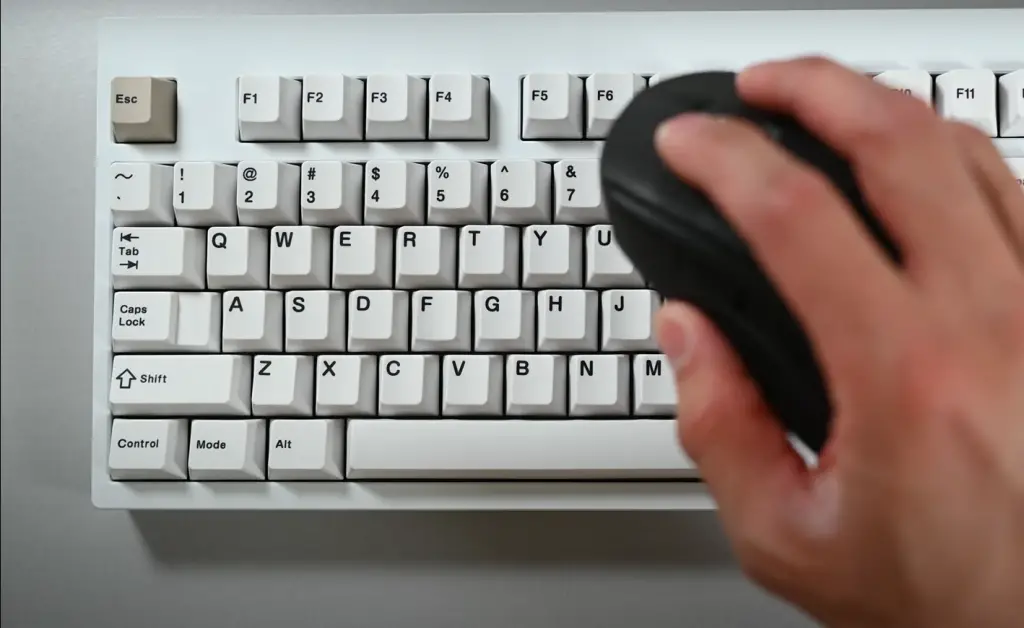
They also provide more resistance when typing and help reduce noise levels which can be beneficial while gaming or working in a busy environment.
Which is better, a brass plate or an aluminum one?
It depends on what you want. Brass keyboards usually last longer and are more dependable, but they cost more. Aluminium keyboards are lighter and can be easier to carry around. You have to decide which type of keyboard is best for you.
You can compare features and specs of each type of keyboard to help make the best decision. Additionally, it is always a good idea to read reviews and ask around before making your final choice. That way, you can be sure that you are getting the most bang for your buck.
When choosing a keyboard, brass or aluminum plate, what should I consider?
You should look for the features and specs that best suit your needs. Consider things like weight, resistance level, keycaps customization options and sound levels.
Additionally, make sure to read reviews from other users as well as research each type of keyboard before making a final decision. Finally, you should also factor in the cost since brass keyboards are usually more expensive than aluminum plates.
Useful Video: ALUMINUM PLATE vs BRASS PLATE Sound Test! | Which plate sound better?
Conclusion
As we can see, brass and aluminum plate keyboards each have some good things and some bad things. The choice between these two types of keyboard is up to you: make sure to consider your own budget and needs when deciding whether or not a brass or aluminum plate keyboard is right for you.
For users looking for an even more luxurious feel, there are other options out there like custom boards with steel plating. No matter what the final decision may be, it will be important to remember that investing in a quality keyboard could lead to being happy with your setup for a long time.
With all things considered, choosing the most suitable material for one’s keyboard will lead to increased pleasure in terms of both comfort as well as price range. What have you chosen? Share your thoughts with us in the comments below!
References:
- https://techbullish.com/brass-vs-aluminum-plate-keyboard/

